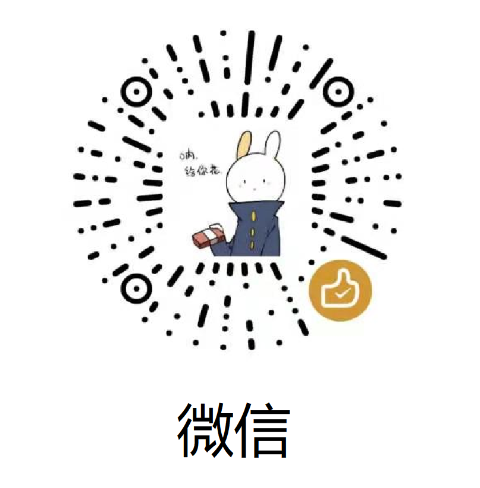Qt之QComboBox定制(二)
上一篇文章Qt之QComboBox定制讲到了qt实现自定义的下拉框,该篇文章主要实现了列表式的下拉框,这一节我还将继续讲解QComboBox的定制,而这一节我将会讲述更高级的用法,不仅仅是下拉列表框,而可以实现下拉框为表格,原理其实上一篇文章中的列表框类似,不过在这篇文章我将会重点讲述一下不同的地方,好了,下边我先截取一下demo中的运行效果图,如图1所示,效果并不是那么美观,不过确实有很大的用处。
图1 表格下拉框
看了上图中的展示,是不是觉得很眼熟,是的,同学你说对了,其实这个界面时仿照铁道部的地区选组框做出来的,只不过是效果上有所差异,而功能上基本差不多,上图中的标题栏我是为了实现透明的表头而故意设置透明的,设置透明也是我后边重点要说的,怎么实现下拉框的背景色透明。
在文章的讲解开始前,我先截取下其他两个下拉框的截取,让有所期待的同学一睹为快。说实话,现在的下拉框并不是那么好看,不过用好了qss,这个就不是那么重要了,重要的是下拉框的交互功能,如图2是下拉框列表框,如图3是下拉框表格,不同于图1,图3是不支持根据表头切换内容的下拉框表格。
图2 下拉框列表
图3 下拉框表格
首先声明一下,在看这篇文章的时候我默认同学们已经看过Qt之QComboBox定制这篇文章,我的代码都是在这个demo的基础上重构出来的,如果有什么疑问可以去这篇文章中看看,或者直接私信我。
说起这个demo,我主要是按照两个路线来实现下拉框界面定制,列表和表格,所以我在实现的时候会分出这两个类来进行封装,然后在把他们的一些公有的操作提取出来,作为一层父类,也就是上文中所提到的博客中的combobox类。
接下来就是代码时刻,demo我会在文章最后给出下载链接,因此文章中我只贴出关键的代码段,
1、首先先来理解下文章中关键的类,理解了这几个类,这个demo的骨架就清楚了
CComboBox:下拉框父类,实现了大多数的数据添加接口
CListPopupComboBox:下拉框列表,如图2
CCheckBoxHeaderView:水平表头,主要是自绘表头
CTablePopupComboBox:下拉框表格,如图3
CTableRowHeaderView:列表头
CCityComboBox:城市选择下拉框,如图1
2、demo中的注释也是主要集中在接口中,不过在这里我还是要在不厌其烦的说一下接口相关的东西,毕竟接口就像是人的眼睛,接口弄明白了才能正确使用。
1 class CComboBox : public QWidget 2 { 3 public: 4 CComboBox(CustomPopupComboBox::ItemType type, QWidget * parent = nullptr); 5 ~CComboBox(){} 6 7 public: 8 //设置分隔符 默认为'|' 9 void SetSeparatorSymbol(char symbol); 10 char GetSeparatorSymbol() const { return m_SeparatorSymbol; } 11 12 //新增数据 13 void AddText(const QString & text); 14 void AddTexts(const QVector<QString> & items); 15 16 //设置下拉框属性 17 void SetItemWidth(int width); 18 void SetItemHeight(int height); 19 20 //设置最多可见条目数 21 void SetMaxVisibleCount(int count); 22 23 //设置下拉框中项模式 24 void SetItemType(CustomPopupComboBox::ItemType type){ m_Type = type; } 25 CustomPopupComboBox::ItemType GetItemType() const { return m_Type; } 26 27 protected: 28 virtual bool eventFilter(QObject *, QEvent *) Q_DECL_OVERRIDE; 29 30 protected: 31 virtual void AddItem(const QString & text) = 0; 32 virtual void ResetItemWidth(int width) = 0; 33 virtual void ResetItemHeight(int height) = 0; 34 35 protected: 36 QWidget * NewItem(const QString & text); 37 38 protected: 39 CustomPopupComboBox::ItemType m_Type = CustomPopupComboBox::LabelItem; 40 char m_SeparatorSymbol = '|';//表格选择项分隔符 41 int m_ItemCount = 0;//表格总的项数 42 QString m_CurrentMemory;//当前选择字符串 43 QComboBox * m_ComboBox = nullptr; 44 QWidget * m_BottomWidget = nullptr; 45 QWidget * m_PopupWidget = nullptr; 46 47 //定制项信息 48 int m_ItemWidth = 150; 49 int m_ItemHeight = 45;//需要和css文件中的QComboBox QAbstractItemView::item{height:45px;}对应 50 51 private: 52 void InitializeUI(); 53 };
上述代码中有几个保护的纯虚函数,这几个接口主要是在具体的下拉框类中实现,而该接口会在父类中被调用,其他public接口都是含有注释的,直接看代码应该也能看懂。
3、列表下拉框
1 /// 说明:combobox定制 下拉框为单列数据,支持文本、单选和复选 2 class CListPopupComboBox : public CComboBox 3 { 4 Q_OBJECT 5 6 public: 7 CListPopupComboBox(CustomPopupComboBox::ItemType type = CustomPopupComboBox::RadioItem, QWidget * parent = nullptr); 8 ~CListPopupComboBox(); 9 10 protected: 11 virtual bool eventFilter(QObject *, QEvent *) Q_DECL_OVERRIDE; 12 13 //新增数据 CComboBox 14 virtual void AddItem(const QString & text) Q_DECL_OVERRIDE; 15 virtual void ResetItemWidth(int width) Q_DECL_OVERRIDE; 16 virtual void ResetItemHeight(int height) Q_DECL_OVERRIDE; 17 18 private: 19 virtual void ConstructView();//列表定制 20 };
实现了CComboBox类中的3个纯虚接口,主要是重置下拉框项的高度和宽度,还有增加项等接口。列表框增加项代码如下:
1 void CListPopupComboBox::AddItem(const QString & text) 2 { 3 if (QListWidget * listWidget = dynamic_cast<QListWidget *>(m_PopupWidget)) 4 { 5 QWidget * itemWidget = NewItem(text); 6 //itemWidget->setStyleSheet(QString("QCheckBox {background-color:lightgray;}" 7 // "QCheckBox:checked{background-color:white;}")); 8 9 itemWidget->setFixedSize(m_ItemWidth, m_ItemHeight); 10 11 int pos = listWidget->count() - 1 < 0 ? 0 : listWidget->count() - 1; 12 listWidget->insertItem(pos, new QListWidgetItem()); 13 listWidget->setItemWidget(listWidget->item(pos), itemWidget); 14 } 15 }
4、表格行表头定制
1 /// 说明:table列表头定制 2 class CCheckBoxHeaderView : public QHeaderView 3 { 4 Q_OBJECT 5 public: 6 CCheckBoxHeaderView(int checkColumnIndex, 7 Qt::Orientation orientation, 8 QWidget * parent = 0) : 9 QHeaderView(orientation, parent) 10 { 11 m_checkColIdx = checkColumnIndex; 12 } 13 14 public: 15 void UpdateSelectColumn(int); 16 17 signals: 18 void SectionClicked(int); 19 20 protected: 21 virtual void paintSection(QPainter * painter, const QRect &rect, int logicalIndex) const; 22 virtual void mousePressEvent(QMouseEvent *) Q_DECL_OVERRIDE; 23 24 private: 25 int m_checkColIdx; 26 };
主要实现了表格行表头自绘制,绘制代码在paintSection接口中实现,具体绘制方式如下:

1 void CCheckBoxHeaderView::paintSection(QPainter * painter, const QRect &rect, int logicalIndex) const 2 { 3 QRect r = rect; 4 r.setTop(r.top() + 20); 5 r.setLeft(r.left() - 35); 6 painter->fillRect(r, Qt::white); 7 8 if (logicalIndex == 0) 9 { 10 r.setTop(r.top() - 20); 11 r.setHeight(20); 12 painter->drawPixmap(rect, QPixmap(QStringLiteral(":/combobox/Resources/bg.png"))); 13 } 14 15 16 QString text = model()->headerData(logicalIndex, this->orientation(), 17 Qt::DisplayRole).toString(); 18 19 painter->setPen(QColor(239, 241, 241)); 20 painter->drawLine(rect.bottomLeft(), rect.bottomRight()); 21 22 painter->setPen(QPen(QColor(Qt::red), 2)); 23 if (logicalIndex == m_checkColIdx) 24 { 25 26 QLine line(rect.bottomLeft() + QPoint(rect.width() / 3, 0), rect.bottomRight() - QPoint(rect.width() / 3, 0)); 27 painter->drawLine(line); 28 29 QFont font = painter->font(); 30 font.setBold(true); 31 painter->setFont(font); 32 } 33 34 painter->drawText(rect, Qt::AlignCenter, text); 35 }
5、表格下拉框
1 class CTablePopupComboBox : public CComboBox 2 { 3 Q_OBJECT 4 5 public: 6 CTablePopupComboBox(CustomPopupComboBox::ItemType type = CustomPopupComboBox::CheckBoxItem, QWidget * parent = 0); 7 ~CTablePopupComboBox(); 8 9 public: 10 11 //设置列数 12 void SetTableColumn(int column); 13 void SetHorizontalHeaderLabels(const QStringList & headerNames); 14 15 //设置下拉框属性 16 void SetItemWidth(int width); 17 void SetItemHeight(int height); 18 19 //设置表头是否可见 20 void SetHorizontalHeaderVisible(bool visible); 21 22 void CompletedData(); 23 24 protected: 25 virtual bool eventFilter(QObject *, QEvent *) Q_DECL_OVERRIDE; 26 27 virtual void AddItem(const QString & text) Q_DECL_OVERRIDE;//新增数据 28 virtual void ResetItemWidth(int width) Q_DECL_OVERRIDE; 29 virtual void ResetItemHeight(int height) Q_DECL_OVERRIDE; 30 virtual void CompleteItems();//补齐没有填充完的行 防止combobox的view接手鼠标事件 31 32 virtual void ColumnHeaderClicked(int column);//列表头被点击处理 33 34 35 private slots: 36 void HeaderClicked(int index); 37 38 private: 39 virtual void ConstructView();//表格定制 40 41 private: 42 //定制项信息 //表格 43 int m_TableColumnCount = 2; 44 };
表格下拉框比列表下拉框复杂,它除了实现列表下拉框的接口外还实现了额外的接口,比如支持列表头和行表头的显示,并支持滚动条的显示等,这个表格下拉框实现起来没有那么完善,其中不乏有大量的bug,如果有同学发现了什么解决不了的问题可以私信我,或许这个bug我已经在项目中修正了,但是demo就没有时间修改。
6、行表头定制
1 /// 说明:table列表头定制 2 class CTableRowHeaderView : public QHeaderView 3 { 4 Q_OBJECT 5 public: 6 CTableRowHeaderView(QWidget * parent = 0) : 7 QHeaderView(Qt::Vertical, parent) 8 { 9 } 10 11 protected: 12 virtual void paintSection(QPainter * painter, const QRect &rect, int logicalIndex) const; 13 14 private: 15 };
7、城市列表下拉框
1 /// 说明:城市选择下拉框 支持行表头显示 不支持滚动条显示 2 class CCityComboBox : public CTablePopupComboBox 3 { 4 Q_OBJECT 5 6 public: 7 CCityComboBox(QWidget *parent); 8 ~CCityComboBox(); 9 10 public: 11 void SetVerticalHeaderLabels(const QStringList & headerNames);//设置表头列显示数据 不建议主动设置 12 void SetVerticalHeaderWidth(int width);//设置表头列宽度 13 void SetVerticalHeaderVisible(bool visible);//设置表头列是否可见 14 15 ///***********************************///18 /// 说明:设置当前默认添加城市分组 配合AddText(AddTexts)一起使用 单次添加的数据 最后必须调用CompletedData接口 19 ///***********************************/// 20 void SetCurrentCityKey(char key){ m_CurrentCityKey = QChar(key).toLower().toLatin1(); } 21 void CompletedData(); 22 23 ///***********************************///26 /// 说明:设置当前城市分组 27 ///***********************************/// 28 void SetCistyMaps(const std::map < char, std::list<QString> > & citys); 29 30 protected: 31 virtual void AddItem(const QString & text); 32 virtual void ColumnHeaderClicked(int column); 33 34 private slots: 35 36 37 private: 38 void InitializeUI(); 39 void FillData();//填充数据 40 int ResetTableData(int column);//根据点击列重置表格数据 41 42 private: 43 bool m_NeedFixedHeight = true; 44 char m_CurrentCityKey = 'a'; 45 int m_CurrentDisplayColumnOrder = 0; 46 int m_VerticalHeaderWidth = 35; 47 QStringList m_VerticalHeaderName; 48 std::map< char, std::list<QString> > m_CitysMap;//按字母存储的城市列表 49 std::map < int, std::list<int> > m_RowsMap;//以列为键存储所在行 50 };
本篇文章的核心主要是想讲解这个类,该类可以实现上述列表下拉框和表格下拉框的功能,只需要调用相应的接口就可以,比如说列表下拉框,那么我只需要调用隐藏行和列表头,并把列设置为一列即可。
这个城市列表框其实也是在Qt之QComboBox定制文章中重构过来的,虽然接口类似,但是内部的实现细节有了不小的变化,就比如这个表格下拉框在列表头点击切换功能实现时,我改变了数据的存储模式,以前都是把数据删除重新添加,但是现在我是把所有数据都添加在表格中,而根据所需要显示的行进行show,而其他行直接hide,这样不仅实现起来方便而且不需要维护大量的缓存数据。
在这篇文章最开始的效果展示图中就能看到,下拉框有一部分是透明的了,这个其实也是我想实现的功能的一部分,主要是想实现一个带有小三角的下拉框,按照上述的方式应该也是能够实现,关于这个下拉框北京透明我也是搞了好久才搞明白,其实只要简单的几行代码就可以,代码如下:
1 if (QWidget * parent = m_ComboBox->view()->parentWidget()) 2 { 3 // parent->installEventFilter(this); 4 parent->setAttribute(Qt::WA_TranslucentBackground); 5 parent->setWindowFlags(Qt::Popup | Qt::FramelessWindowHint); 6 }
只需要获取下拉框的顶层父类,然后设置其属性并设置其窗口风格即可,可是就这么几句话,不设置根本不能够实现背景色透明。所以看到这个信息的同学真是幸福。
城市表格下拉框的使用方式也比较简单,在添使用AddText加完数据之后需要调用CompletedData接口类告诉该类数据添加完毕;如果调用SetCistyMaps接口设置数据,则不需要,demo中使用方式如下:

1 CCityComboBox w3(&p); 2 3 w3.SetItemType(CustomPopupComboBox::LabelItem); 4 w3.SetHorizontalHeaderLabels(QStringList() << QStringLiteral("ABCDEF") << QStringLiteral("GHIJ") 5 << QStringLiteral("KLMN") 6 << QStringLiteral("PQRSTUVM") 7 << QStringLiteral("XYZ")); 8 w3.SetVerticalHeaderLabels(QStringList() << QStringLiteral("A") << QStringLiteral("B") 9 << QStringLiteral("C") 10 << QStringLiteral("D") 11 << QStringLiteral("E")); 12 13 w3.SetHorizontalHeaderVisible(true); 14 w3.SetVerticalHeaderVisible(true); 15 w3.setFixedSize(150, 30); 16 w3.AddText(QStringLiteral("a")); 17 w3.AddText(QStringLiteral("a")); 18 w3.AddText(QStringLiteral("a")); 19 w3.AddText(QStringLiteral("a")); 20 w3.AddText(QStringLiteral("a")); 21 w3.AddText(QStringLiteral("a")); 22 w3.AddText(QStringLiteral("a")); 23 w3.AddText(QStringLiteral("a")); 24 w3.AddText(QStringLiteral("a")); 25 w3.AddText(QStringLiteral("a")); 26 w3.AddText(QStringLiteral("a")); 27 w3.AddText(QStringLiteral("a")); 28 w3.AddText(QStringLiteral("a")); 29 30 w3.SetCurrentCityKey('B'); 31 w3.AddText(QStringLiteral("b")); 32 w3.AddText(QStringLiteral("b")); 33 w3.AddText(QStringLiteral("b")); 34 w3.AddText(QStringLiteral("b")); 35 w3.AddText(QStringLiteral("b")); 36 w3.SetCurrentCityKey('C'); 37 w3.AddText(QStringLiteral("cC")); 38 w3.AddText(QStringLiteral("cC")); 39 w3.AddText(QStringLiteral("cC")); 40 w3.AddText(QStringLiteral("cC")); 41 w3.AddText(QStringLiteral("cC")); 42 w3.AddText(QStringLiteral("cC")); 43 w3.AddText(QStringLiteral("cC")); 44 w3.SetCurrentCityKey('M'); 45 w3.AddText(QStringLiteral("m")); 46 w3.AddText(QStringLiteral("m")); 47 w3.AddText(QStringLiteral("m")); 48 w3.AddText(QStringLiteral("m")); 49 w3.AddText(QStringLiteral("m")); 50 w3.CompletedData();
本篇文章我只讲述了实现这样一个下拉框所需要的接口文件,而具体的实现我没有拉出来将,因为我觉着这个和上一篇文章中的实现类似,只是在接口上有比较大的重构。在写这篇文章的时候其实我就有一个想法,我应该还会写关于下拉框定制的第三篇文章,而这第三篇文章主要讲的还是怎么实现一个下拉框,但是走的完全是和现在不一样的路线。因为最近项目真的非常的紧张,根本没有时间去写和测试相关的demo,不过后边如果有时间我会尽快补上。
关于全新的下拉框定制,我的想法是完全定制一个下拉框,而不是重写QComboBox,这样的话可以省去很多的麻烦,比如:下拉框的大小,下拉框的视图位置等问题,说到这儿,我突然想起来这个demo的一个bug,那就是在表格下拉框出现下拉框滚动条的时候,如果在滚动了垂直滚动条之后隐藏下拉框,那么下次展示下拉框窗口时,视图会显示不正确,这个问题我自己已经解决了,但是没有在demo体现,解决办法是:在隐藏下拉框窗口时,把其视图滚动到顶端,实现代码如下:

1 bool CTablePopupComboBox::eventFilter(QObject * watched, QEvent * event) 2 { 3 if (m_BottomWidget && m_BottomWidget == watched) 4 { 5 if (QMouseEvent * mouseEvent = static_cast<QMouseEvent *>(event)) 6 { 7 if (mouseEvent->type() == QEvent::MouseButtonPress 8 || mouseEvent->type() == QEvent::MouseButtonRelease) 9 { 10 return true; 11 } 12 } 13 } 14 else if (watched == m_ComboBox->view()->parentWidget() 15 && event->type() == QEvent::Hide) 16 { 17 if (QTableWidget * tableWidget = dynamic_cast<QTableWidget *>(m_PopupWidget)) 18 { 19 tableWidget->scrollToTop(); 20 } 21 } 22 23 return QWidget::eventFilter(watched, event); 24 }
注意:这个demo比较粗糙,如果有问题的同学可以私聊我,不管是建议还是问题我都会认真的回答
demo下载链接:http://download.csdn.net/detail/qq_30392343/9608629





 浙公网安备 33010602011771号
浙公网安备 33010602011771号